#Regulations
Nissan Back On Track in Japan, Resumes Vehicle Production
Nissan is resuming production at five of its domestic plants this Tuesday after Japan’s transport ministry finally approved changes to the improper final-inspection procedures that forced a major vehicle recall in October. The issue involved final checks being conducted by uncertified technicians, a procedure only mandated for vehicles sold within the brand’s home country of Japan. Exported vehicles aren’t subjected to it and, so far as we know, didn’t have any problems for having forgone the inspection.
However, JDM production has been suspended since October 19th and Nissan has scrambled to recall 1.2 million vehicles after being required to re-inspect everything built for the Japanese market over the last three years. That’s a large penalty for what amounts to little more than having the wrong guy eyeball a car as it rolls off the assembly line.
Nissan Continued Using Uncertified Inspectors After Misconduct Exposed
Nissan Motor Co. has recalled 1.2 million new vehicles it sold in Japan over the last three years after discovering vehicle checks were not being performed by certified technicians. After a lengthy internal investigation, the company stated it continued to conduct unaccredited final checks as recently as last week.
News of the discovery came on Wednesday, more than two weeks after Chief Executive Hiroto Saikawa publicly stated only certified technicians had conducted checks since September 20th. Despite attempts to remedy the widespread issue at its Japanese factories, there were at least two technicians lacking the necessary training and credentials at its Shonan Plant located in Tsutsumicho, near Hiratsuka City.
California's Current Strategy to Ban Internal Combustion Engines
California has been toying with the idea of banning internal combustion motors for a couple of years now. While the concept is gaining popularity across the globe, the ban itself is a bit misleading. Regions in favor of the idea aren’t really pursuing an outright ban on engines that burn gasoline; they’re trying to mandate electrification and reduce emissions via non-traditional powertrains.
In April of 2015, California Governor Jerry Brown announced, “If the federal government can’t get it right, we in California are going to take care of business.” With the Trump administration making strides to roll back regulatory efforts, it appears the state of California is ready to pop in some Bachman–Turner Overdrive and begin taking care of said business.
Automotive Industry Annoyed China Gets to Decide What Engines It Offers
With the possible exception of the United States in the near future, emission regulations are getting harsher everywhere. Nowhere is that more true than China. Not only does Asia’s most populous country have some of the most stringent emission requirements for new cars, it also has the strictest sales quotas for electrically powered vehicles on the planet. Too strict, according to some automakers.
A Chinese draft regulation issued last week stipulates automakers must sell enough electric or plug-in hybrid vehicles to comprise 8 percent of total volume by 2018, 10 percent by 2019, and 12 percent by 2020. This comes after talks between Chinese Premier Li Keqiang and German Chancellor Angela Merkel that hinted China might have mercy on Germany manufacturers.
Even Automakers Disagree With Trump's Choice to Abandon the Paris Accord
On Thursday, President Trump made the decision to ditch the Paris climate accord and the entire internet seemingly spent the next twelve hours calling it a misstep. Either the president possesses a hidden wisdom on the subject that nobody else can seem to fathom, or he has severely misjudged the public’s position on environmental issues. Calling the accord “unfair at the highest level to the United States,” Trump suggested the deal was detrimental to the country’s manufacturing efforts and gave other nations a financial advantage.
However, the instant feedback from the automotive industry did not appear to share his viewpoint. With nearly 200 other countries still adhering to the nonbinding Paris agreement, it’s almost as if Trump had forgotten car companies operate on a global stage. Both General Motors and Ford Motor Company issued statements in opposition to Trump’s decision.
“We believe climate change is real, and remain deeply committed to reducing greenhouse gas emissions in our vehicles and our facilities,” announced Ford. “Our commitment to sustainability is why we’re investing so heavily in electrification and adding 13 new electrified vehicles to our lineup.”
President Trump Planning to Abandon Paris Climate Accord: Reports
President Donald Trump has said he’ll be providing his thoughts on the Paris climate deal in the coming days, but media outlets are already suggesting his take on the issue will be to leave it. Sources are claiming the president’s mind is made up and, to the surprise of no one, odds are good he will withdraw the U.S. from the deal.
Trump has already made it his mission to overturn as many Obama-related policies as possible and seems unconcerned with environmental issues that might stand in the way of potential manufacturing opportunities. Since taking office, Trump has been pushing regulators to rethink the United States’ auto emission guidelines, undoing one of the previous administration’s final acts in office.
Pulling out of the Paris accord would fulfill a campaign promise and negate the need for the U.S. to adhere to rigid emission standards — at the expense of further alienating the president from Europe’s leadership.
Study Suggests Diesel Cars Killed 38,000 Extra People Without Even Hitting Them
Earlier today, we mentioned Volvo was preparing to dump its diesel-burning engines because the EU is aggressively pursuing anti-diesel legislation. While it’s easy to accuse Europe of being fraught with fringe environmentalists, the truth is that the continent spent decades avoiding restrictions on diesel-burning passenger vehicles, sold loads of them, and has suddenly found itself with its green pants around its ankles.
In addition to hazy skies, air pollution isn’t exactly great for your health. A recent study published in Nature found diesel engines produced 5 million more tons of nitrogen oxide than previously estimated for 2015. The research focused on vehicles in Australia, Brazil, Canada, China, the European Union, India, Japan, Mexico, Russia, South Korea and the United States and uncovered that we’ve grossly overestimated the amount of good being done by our global regulatory efforts. Companies are practically guaranteed to be falsifying testing results while others are openly incapable of reaching government-enforced guidelines.
Who cares? It’s not like anyone is dying, right? Well, not exactly.
Automakers Didn't Even Waste a Full Business Day Asking New EPA Head for Relief
Scott Pruitt, Oklahoma’s former attorney general, was sworn in to his new role as Environmental Protection Agency administrator late Friday following a 52-46 Senate vote earlier in the day.
While it isn’t known what Pruitt did over the weekend, it’s safe to say that members of the Alliance of Automobile Manufacturers spent at least part of that downtime drafting a letter, likely mirroring one they’ve already sent to President Donald Trump.
The group, representing 12 automakers that build 77 percent of the light-duty vehicles sold in the U.S., wants action on lowering the industry’s fuel economy and emissions targets. Urgent action, ideally. Now that there’s been a change at the top, the group feels that it might finally get its wish.
Fields to Trump: Fuel Economy Rules Put One Million U.S. Jobs at Risk
Ford Motor Company chief executive officer and doomsday prophet Mark Fields thinks one million American jobs will be placed in peril if the country’s current fuel economy standards aren’t made more flexible.
The alarming scenario was given by Fields to President Trump himself at last week’s private meeting of U.S. automakers at the White House.
The Big Three Go to Washington: Breakfast Ensues, While Mexico Stews
At the start of the second real workday of the Trump administration, the leaders of the Detroit Three automakers marched into the White House for a breakfast meeting with their newly minted president.
We don’t know for sure what they ate, but we can relate what they talked about. This won’t come as a shock: investment. Specifically, assembly plant investment in the U.S., rather than Mexico.
Ford CEO Mark Fields, General Motors CEO Mary Barra and Fiat Chrysler Automobiles CEO Sergio Marchionne knew the landscape they were entering. Yesterday, Trump signed an executive order that pulled the U.S. out of the Trans-Pacific Partnership and moved to renegotiate the North American Free Trade Agreement. Today, he signed an executive action to advance approval of the Keystone XL and Dakota Access pipelines.
Deals. Besides perhaps eggs and toast, Trump wanted deals. Or, at this early point, promises and assurances at the very least.
Federal Government Considering New Powers to Regulate Self-Driving Cars
The federal government doesn’t want to leave the issue of autonomous vehicle safety for states to decide, and may create new powers of oversight and approval for autonomous technology.
After president Barack Obama laid out his goals for the industry in a Pittsburgh Post-Gazette op-ed yesterday, the National Highway Traffic Safety Administration issued a set of voluntary guidelines to manufacturers today, asking them to prove their vehicles are safe before entering public roadways.
Michigan to Tesla: Sorry, No Stores For You. Next!
Tesla’s dream of establishing a sales footprint in America’s auto manufacturing heartland is dead, at least for now, after Michigan lawmakers slammed the door on its direct sales bid.
The electric automaker’s application for a dealership license was denied after state representatives claimed it violated a law specifically designed to keep companies like Tesla out, The Detroit News reports.
Federal Government Pushes for Speed Limiters on Trucks and Buses
The U.S. Department of Transportation wants to mandate speed-limiting devices on all tractor-trailers and buses in the country in a bid to save lives and fuel.
Announced yesterday by the National Highway Traffic Safety Administration, the proposal would limit vehicles with a gross vehicle weight rating of 26,000 pounds or more to 60, 65, or 68 miles per hour. Other speed limits could be considered, but that’s up to the public to debate.
Is NASCAR About to Ban Celebratory Burnouts?
R.I.P. victory lap burnouts? It sure looks that way.
NASCAR seems to have reached a tipping point in its tolerance of post-race victory burnouts, some of which damage the vehicle enough to interfere with the post-race inspection process. After an incident last weekend, the organization says it might have to lay down rules, Autoblog reports.
Elon Musk and Top Tesla Exec Stage Angry Man Speaking Tour
The dialogue from Tesla wasn’t all rainbows and puppies this week.
In oddly coordinated diatribes, CEO Elon Musk and his vice-president of business development took off the soft driving gloves and laid into their competition and the country’s regulators. The message? Put up, pay up, or shut up.



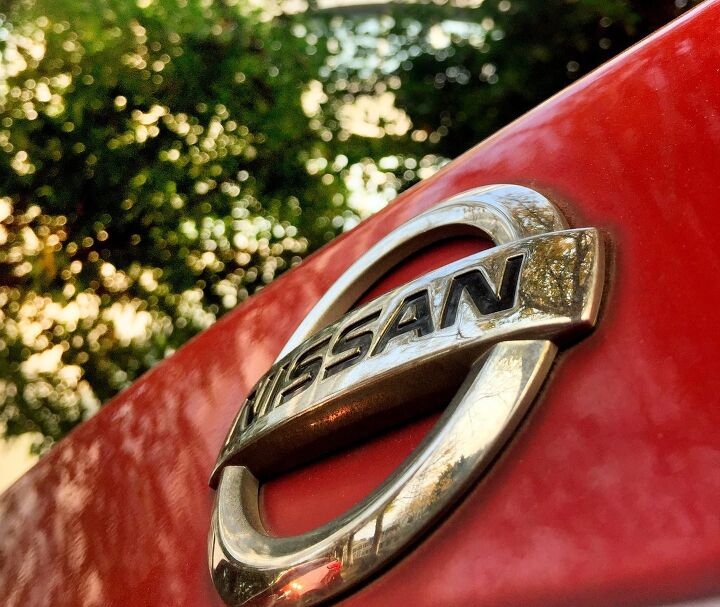

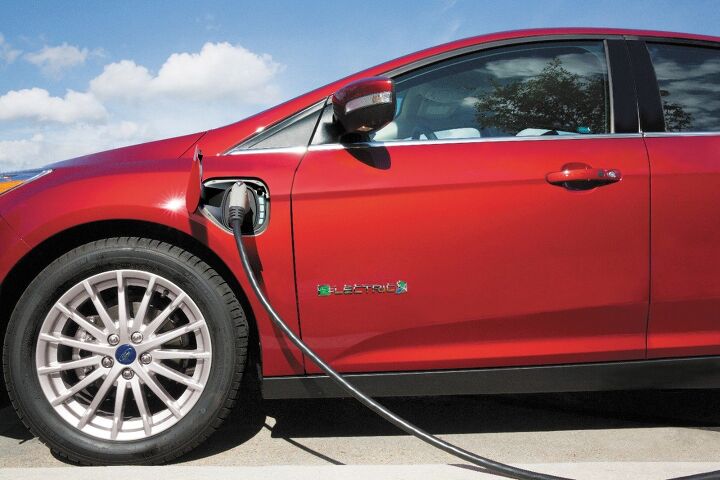



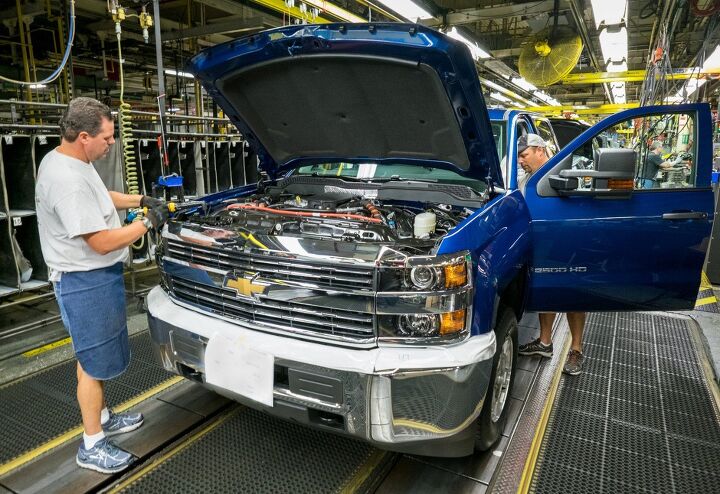
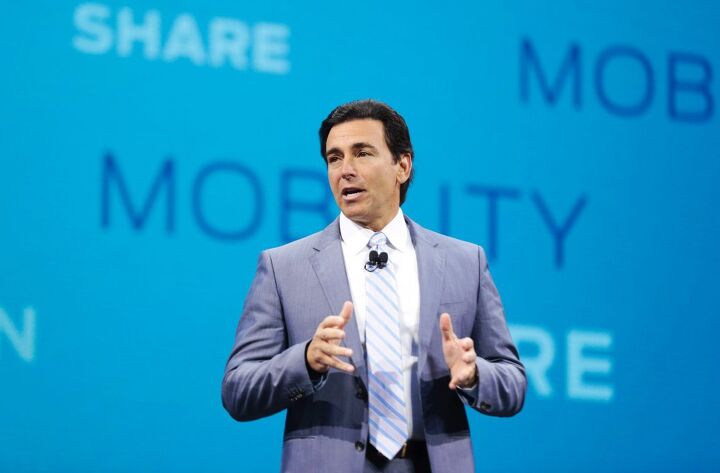
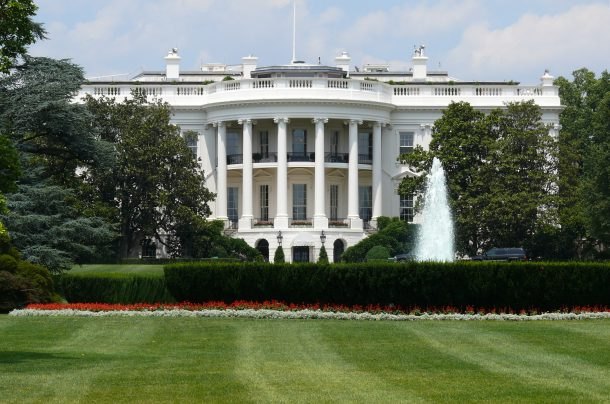


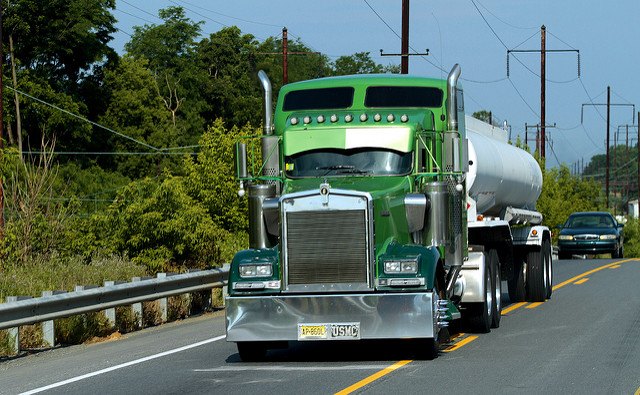
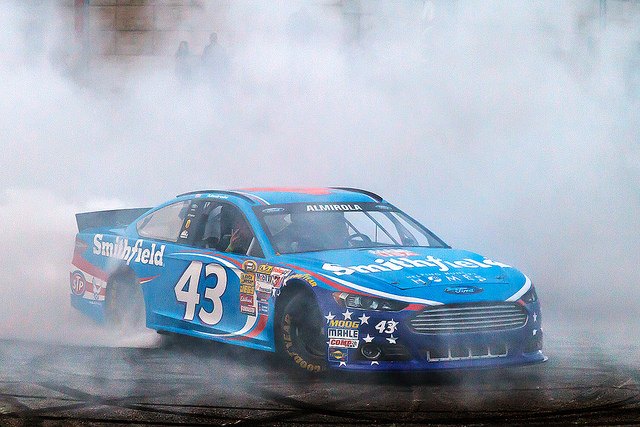













Recent Comments